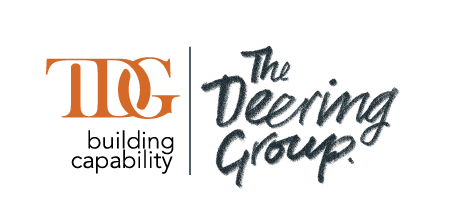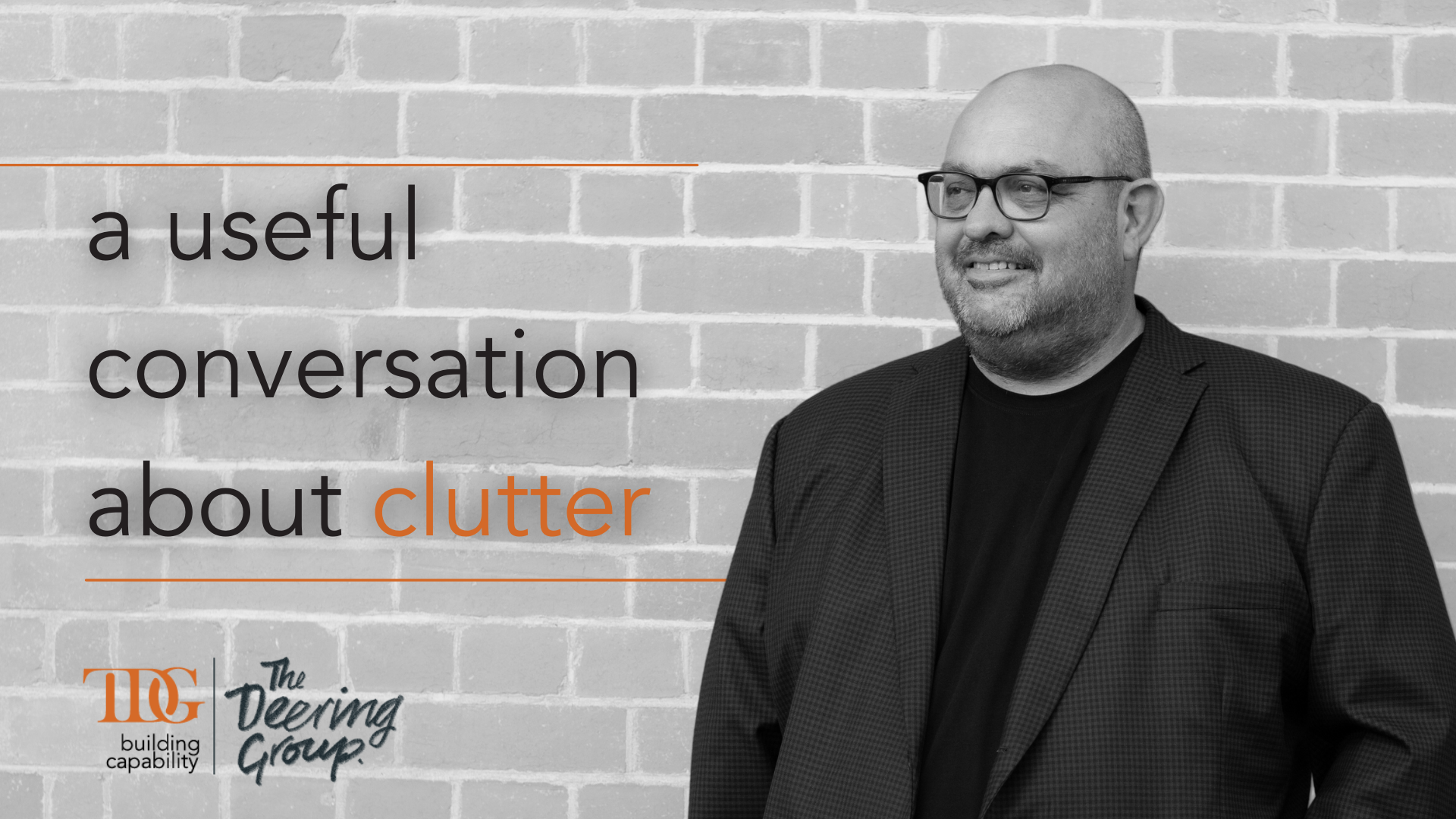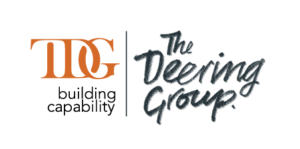Clutter
A confused or disordered state or collection; a jumble. Let’s talk.
I’ve got to say, I am really lucky.
I get to meet with talented people seeking to do amazing things in the places where they work.
So often though I see those same people, (and teams, and organisations) working under layers of unnecessary complexity, something we frame as ‘clutter.’
The clutter I’m talking about goes beyond an untidy desk or lunchroom, it’s the organisational clutter that pervades the business with unnecessary obligation, burden, and complexity.
It’s the outdated requirements, the weight of compliance, and complex practices and procedures that often were created for the best of reasons by these very same people or their peers.
This clutter is often created over many years of iterative addition by well-meaning people seeking to improve and make better. And at each improvement, each addition, each iteration we forget to remove, to reduce.
Whatever it may be, however it began, this organisational clutter settles into the business, finds a place to set up a tent, makes itself a nice cup of tea, and begins to spread.
Often right under our noses. Not evil, no malice, just an intent to make better that goes awry.
Unfortunately, though, this clutter is not a welcome tenant and is getting in the way of growth and development and can limit us from realising the full potential of all we could be as a person, a team, and a business. It weighs on us, slows us down, and takes up space.
Now you may be thinking; that can’t possibly be me or our business.
You may be right.
You may also be like the house we have all visited of the relative or friend, you know the one.
In this house is collected and stowed away and accumulated masses of ‘things and stuff,’ objects that have outgrown their usefulness and may no longer serve a purpose.
A growth of clutter that has been iterative but invasive.
As we enter, we notice the clutter because for us it is palpable, but for the inhabitants, they think of this as just ‘how it is,’ and more so, ‘how it always was’.
So, what do we do about Organisational clutter?
Firstly, we must admit that it may exist, that the potential of clutter is present in your business.
Secondly, we need to look at what we do and how we do it. Cast a cold eye on our processes, systems, and practices.
As William Morris says, “Have nothing in your house that you do not know to be useful or believe to be beautiful.”
Thirdly we need to remove, reduce, and recycle. If something doesn’t serve it should be removed. We need to make that decision and action the choice. Recycle you say, yes, often things are in the wrong place or not where they should be. Reordering and reorganising can reduce the burden of clutter.
“Clutter Is the physical manifestation of unmade decisions fueled by procrastination” – Christina Scalise.
This third and critical step is one that challenges our clients most often when decluttering.
I am regularly asked “How do we declutter safely, without increasing risk in the business, and to our people. How do we know if we can remove that training program, recycle, and simplify those procedures, reduce our systems and complexity?”
Great question.
So how do I do it, how does my team do it…. There is no magic or mystery. This third and critical step is one that challenges our clients most often when decluttering.
We go back to basics, we do analysis so we can make decisions that are solid and grounded in data, not just opinion.
With organisational clutter we seek to understand what the business does, what the people do, often to a level of mapping the tasks people perform in how they perform their role, do their work.
Then we look at all the supporting systems and processes and see if they enable the business and its people.
Are they Useful?
Do they add Value?
Do they harm, hinder, or help people?
The process we undertake often surprises the people we work with.
When they see just how much clutter is present in their business. How much burden and complexity they can safely remove.
It’s like pulling open the curtains, opening the windows and allowing light and air back into the house.
The bonus prize – it also shows the organisation where the clutter may have caused a degradation or a distraction causing a gap, requiring a rebuild or repair to maintain organisational integrity. Not just remove but also improve!
So as this year begins can I encourage you to pull your curtains and open your windows.
Take the time to remove, reduce or recycle the clutter in your business so you can find healthy space for your people to be the amazing folk they are.
And the good news, if done well this will also add to your bottom line by removing burden, removing complexity, removing cost, while improving engagement, and increasing value.
Who would have thought what a little decluttering can achieve!
As always, I love to hear your thoughts. Send me a message, they make my day.
If you are unsure where to begin, please feel free to reach out.
We do a lot of this for businesses large and small. We love a good declutter.
Why?
It’s amazing to see what your team can do with some air under their wings and way less luggage.
Onwards.
Andrew Deering
Managing Director






